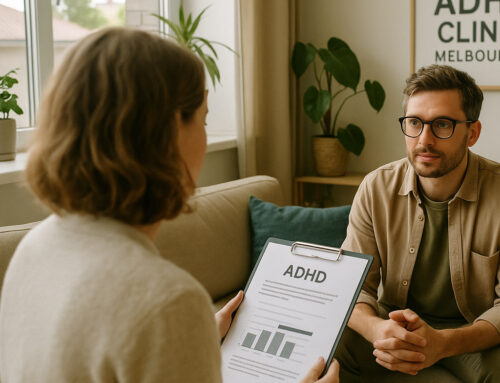Clinical Psychologist ADHD Diagnosis: Understanding the Process
Struggling with focus, impulsivity, or time management? A professional ADHD diagnosis from a clinical psychologist can provide clarity and a roadmap for managing symptoms. This guide explores the assessment process, its benefits, and what to expect.
What is ADHD?
Attention Deficit Hyperactivity Disorder (ADHD) is a neurodevelopment condition that affects executive functioning, including attention, impulse control, and organisation. It impacts people of all ages and can present differently in adults compared to children. Many adults seek a diagnosis later in life after struggling with work, relationships, or daily responsibilities. ADHD is often misunderstood, leading to years of frustration before individuals recognise their symptoms align with the condition.
Why Get an ADHD Diagnosis?
Obtaining an ADHD diagnosis from a clinical psychologist can be life-changing. A formal diagnosis provides a better understanding of personal challenges and enables access to tailored strategies, workplace accommodations, and treatment options. Without a diagnosis, individuals may experience frustration, misinterpret their struggles, or be unable to access appropriate support. Additionally, a professional diagnosis can help differentiate ADHD from other conditions with overlapping symptoms, such as anxiety or depression, ensuring the most effective treatment plan.

The ADHD Diagnosis Process
The assessment process typically includes:
- Clinical interviews to explore symptoms, history, and daily challenges
- Standardised ADHD assessment tools and cognitive tests
- Evaluation of executive functioning skills
- Feedback session with a comprehensive report
- Consideration of co-existing conditions that may impact symptoms
A clinical psychologist will analyse the results and determine if an ADHD diagnosis is appropriate. They may also provide recommendations for next steps, such as lifestyle changes, therapy, or medication options (to be discussed with a psychiatrist). The process is designed to be thorough, ensuring that each individual receives an accurate diagnosis and personalised support plan.
Benefits of a Professional ADHD Diagnosis
Getting diagnosed by a clinical psychologist has several advantages, including:
- Improved self-awareness and understanding of personal strengths and challenges
- Access to workplace and academic accommodations
- Development of personalised coping strategies
- Guidance on evidence-based treatments and support networks
- Validation of experiences, reducing self-doubt and frustration
- Empowerment to make informed decisions about treatment and lifestyle adjustments
Next Steps
If you suspect you have ADHD, seeking a diagnosis from a clinical psychologist is the first step toward better understanding yourself and gaining the support you need. Book an ADHD assessment today to take control of your cognitive health. Early diagnosis and intervention can significantly improve daily functioning and overall well-being, making it easier to navigate personal and professional life with confidence.



